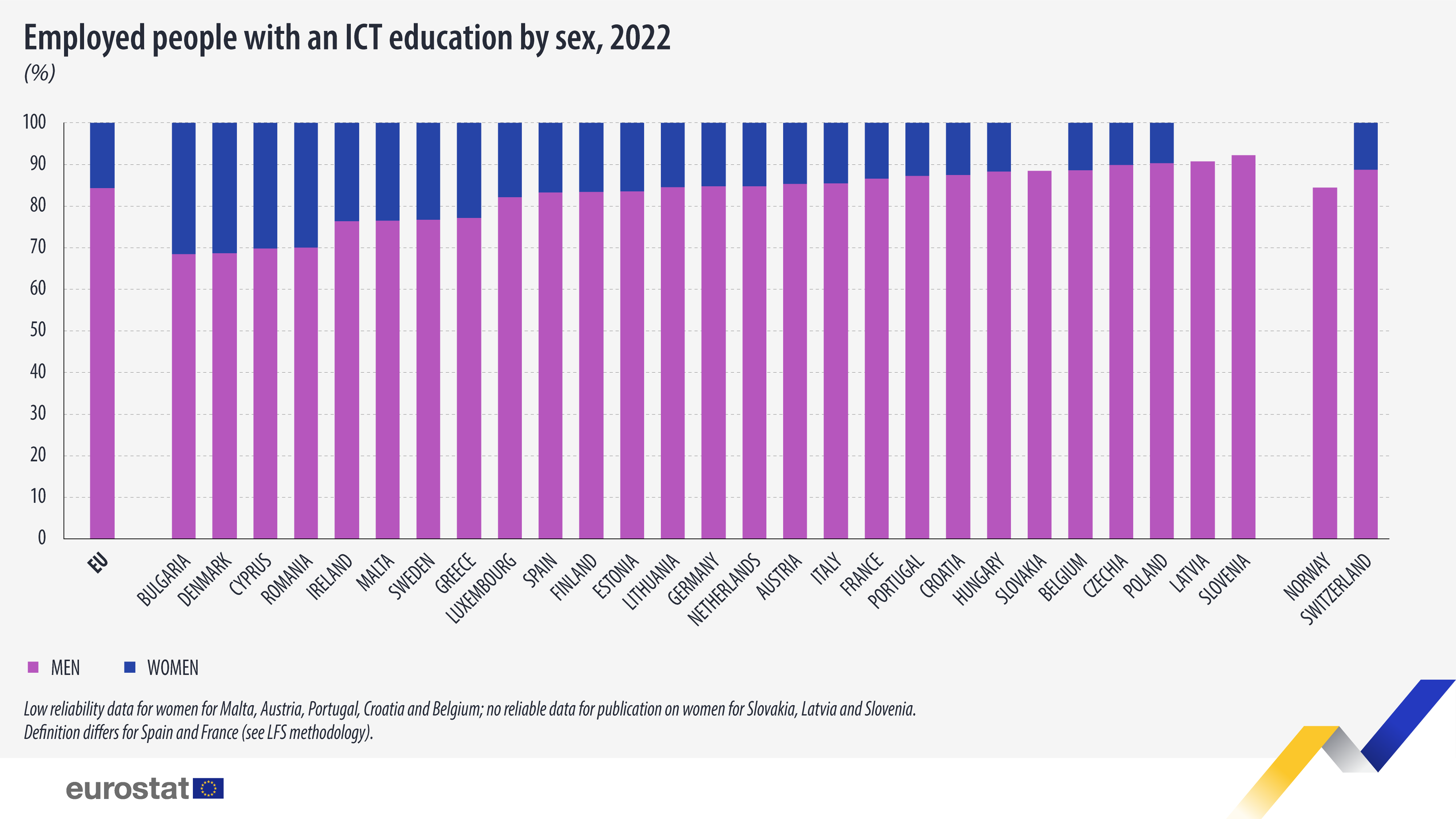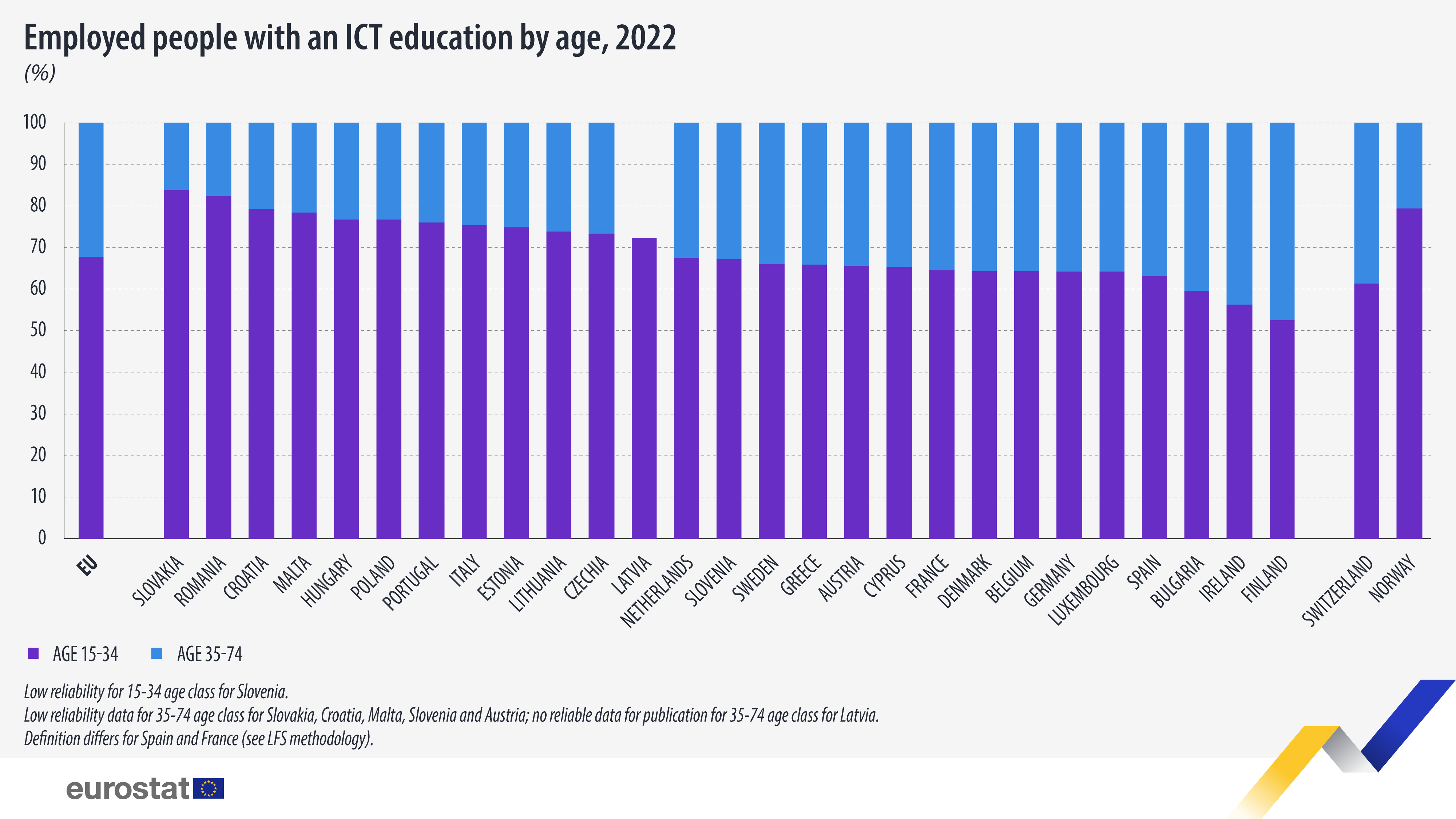Men represented 84% of people employed with an ICT education

In 2022, there were 3.0 million people employed with an ICT education in the EU, 6.7% more than in 2021 (2.8 million). Men represented 84.4% (2.5 million) among employed people with an ICT educational background, an increase of 7.1% from the previous year (2.4 million in 2021), while women represented 15.6% (463 100) of those employed, up 4.4% from 2021 (443 400).
Looking at the EU members, Slovenia (93.0%), Latvia (91.0%), Poland (90.3%), Czechia (89.9%), Belgium (88.7%) and Slovakia (88.5%) had the highest shares of men in the total number of employed people with an ICT education.
As for the women employed with an ICT education, the highest proportions were recorded in Bulgaria (31.5%), Denmark (31.3%), Cyprus (30.2%) and Romania (29.9%).
Source dataset: isoc_ski_itsex
Young ICT-educated employed people represent the majority
In the EU, more than two-thirds (67.8%) of employed people with an ICT education were between 15 and 34 years old in 2022, and 32.2% were between 35 and 74 years old.
Source dataset: isoc_ski_itage
Young people aged 15 to 34 made up the majority of ICT-educated people in employment in almost all EU members, with the highest shares in Slovakia (83.8%), Romania (82.4%), Croatia (79.3%), Malta (78.4%), Hungary, Poland (both 76.7%) and Portugal (76.1%).
The highest percentages of those 35 to 74 years old with an ICT education in the EU were in Finland (47.4%), Ireland (43.7%), and Bulgaria (40.4%).
For more information
- Statistics Explained article on ICT education
- Thematic section on digital economy and society
- Database on digital economy and society
Methodological notes
- ICT-educated people have achieved formal qualifications at upper secondary level or at tertiary level within the fields of: computer use, database and network design and administration, software and applications development and analysis, and inter-disciplinary programmes and qualifications involving Information and Communication Technologies.
- Malta, Austria, Portugal, Croatia and Belgium: low reliability for the female data.
- Slovakia, Latvia and Slovenia: data on women in employment with an ICT education background are not available because their reliability level does not reach the publication thresholds.
- Slovenia: low reliability for data for the younger age class (15-34 years).
- Austria, Slovenia, Malta, Croatia and Slovakia: low reliability for data for the older age class (34-75 years).
- Latvia: data for the older age class (34-75 years) are not available because their reliability level does not reach the publication thresholds.
- Spain and France: definition differs (see LFS metadata for more details).
If you have any queries, please visit our contact us page.


